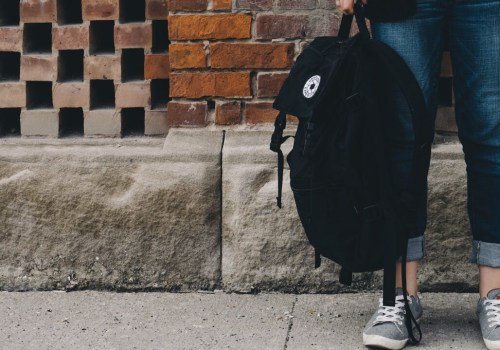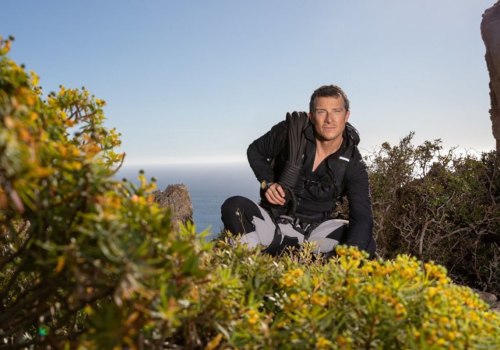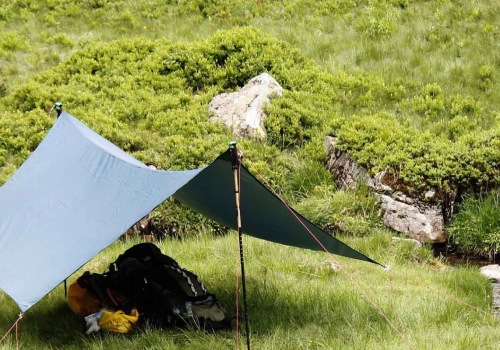?
The truth is that there are only five basic needs; , , nutrients, and .
If you want your body to survive and thrive, it is crucial that you are fueling your body :-) with healthy foods, adequate , plenty of , as well as clean air and proper .
Water
More than 70 percent of human weight is . Anything that disrupts this balance can cause :-) serious . Weather conditions in nature can cause fatal very quickly.
Therefore, you need a way to compensate for any loss from your body
Humans can survive quite a long time without , but only a few days without . can lead to weakness, mental fatigue, and ultimately death. Finding should be a priority during a . Use a soda can to collect and store rainwater.
You can also find by collecting morning dew from plants. Try soaking a :-) cloth or sock in long, damp herbs or plants and then draining the into the can. Soda Can Tabs Can Be Turned Into Raw Hooks. After removing the tab, fold the top to weaken the corner..
Food
provides the with the energy to perform optimally both physically and mentally. There :-) are guidelines for the amount of calories you need per day for optimal performance. You may need even more in nature, but here, quality is better than quantity.
The best examples are wheatgrass, maca powder and spirulina. Also, make sure is ready to eat or easy to prepare. The should be sufficient in quantity to feed him for the entire period that he will be in the open air. In addition to the you pack, you need skills on how to get from the jungle.
Prepare a descriptive list of all wild edible foods in advance. :-) Any knife can be a lifesaver in the forest. However, a human knife is a structurally specialized knife for excellent performance in situations. The knife helps you clear roads, build , prepare and hunt for .
In addition, it is a formidable weapon of self-defense if you know how to handle it. Also use as an impromptu first aid component. Look for a fixed blade knife. Its lack of moving mechanical parts gives it the durability and strength needed to be able to cut branches and twigs from larger trees.
The knife must be sharp to make your work easier. Suffering an injury in a is something to be well prepared for. You may not be able to access medical equipment on time due to the remoteness of nature. :-) A first is vital in this case.
It can help stop worsening bleeding from minor injuries, mobilize injured limbs, and even cover wounds to prevent infections. You don't need to opt for the huge, fully equipped first aid kits. Survivors can benefit from smaller versions. You can even reduce more weight from the kit by packing only the essentials, such as latex gloves, gauze, cotton, bandages, over-the-counter pain relievers and alcohol-based antibiotics and cleaning wipes.
Mobile phones are often useless in situations. Therefore, you must :-) have a reliable way of communicating with the civilized world if you need help. A signaling device is crucial in nature. personnel, bystanders, or even a passing plane can easily recognize a flash from a signal mirror or the sound of a whistle.
Make sure you know how to send a signal for a faster response. While you can start a with the rudimentary methods of a hand drill or plow, it's a daunting task and the chances of success are limited. A :-) lighter or matchbox gives you the safest way to start a with a single stroke. There are now that allow you to start a even in damp conditions.
You can't underestimate the importance of rope or rope in a . It's a multi-purpose item that can significantly increase your chances of doing it in nature. Aim for the 550 parachute rope, commonly known as a parachute rope. It is a rugged, :-) resistant, lightweight and portable product.
Fire
Each and every person who ventures into the outdoors should have a minimum of two ways to start a with them - one on their person at all times, and the other with their gear. A few small fires provide more heat than one large . Collect firewood :-) you think you will need for the night and then collect the same amount again, experience shows you will need it.
Consider this: using a lighter or matches to start a in the comfort of your own home is not the same as trying to start one with the same materials while the wind is blowing and the rain is coming down hard.
A lighter or matchbox gives you the safest way to start a with a single stroke. There :-) are now that allow you to start a even in damp conditions.
Shelter
The rope will allow you to build an using a tarp or a large garbage bag. In addition, it will help you hang or lift out of reach of wild animals. The ability to stretch when wet is one of the most incredible :-) features that make the parachute cord special for emergencies. Hopefully, this list of 10 things you need to survive in the desert is all-encompassing.
This doesn't mean you don't need other items. Here are the basics you need to make sure your bag is part of your outdoor readiness. But, the list isn't complete without mentioning your mental faculties and a trustworthy friend. Only a trusted friend can help you if the situation gets serious.
You can quickly build an poncho by using shoelaces along with a tarp or rain poncho. Tie the cords, stretch them between two tree trunks, tie them around and hang the plastic, like a tent. Next, you can use some sharp sticks as tent pegs. You can even light a with nothing but your shoelaces and some sticks and wood.
It is also necessary to be imaginative, reflective and creative to invent new ways of in different emergencies. If you plan for and meet these 5 needs, you have a reasonable chance :-) of surviving in any situation. In nature, real men respect the basics. A wrong turn on a trail when the sun goes down, or an object is lost, and you're in serious trouble.
It's better to have it and not need it, than to need it and not have it. So, here are 5 simple and must-haves to always carry out your next outdoor adventure. If you are MacGyver, the famous American television spy of the late 80s, you would do something dramatic, such as preparing a defibrillator with two chandeliers and an electrical cable, fighting snakes with nothing but kerosene or :-) using chocolate to stop a sulfuric acid leak. However, you will most likely not find yourself lost in the woods while fighting an international terrorist network.
Packing, packing is one of the creeds of activity in nature; translated, it basically means that anything you bring with you when you walk and camp should also be taken home as well. Many experienced campers do this by carrying plastic with them, which can also :-) be used to cover a backpack and keep it dry during a rain or storm. Taking that idea further, , particularly large, sturdy 55-gallon , are exceptionally useful in situations. Staying warm and dry is one of the most important priorities whenever you are exposed to the elements, especially if you don't know how long it will take until you have access to housing and heating.
Punching a hole in the top of a large garbage bag and sliding your head through :-) it instantly turns it into a waterproof and windproof jacket. But that's just the beginning of the uses of a garbage bag. They can also be used as protection from the sun, or, if they are full of leaves, as a pillow or mattress or simply as something to sit or lie on that will prevent you from getting wet on the damp floor. can also be used to obtain essential .
It can be filled with snow and allowed to melt, leaving a container filled with H2O :-) or deposited in a hole as a way to trap rainwater. In a , your first concern is probably not the time of day. However, your wristwatch can be a big help. A watch for everyday use can serve a double function as a compass.
Shoelaces can serve a number of purposes: Whenever you need a rope or rope, your shoelaces can usually do the job. You can use them to make a splint in case of injury. If you have a sharp object to use as a hook, a lanyard can make a :-) decent fishing line. Tie the rods together to make a quick or even a raft.
Sleeping
KEEP WARM A night outdoors can be beautiful, but sometimes can be downright cold. Whether you bring a or a wool blanket, make sure you have something to keep your body warm. Along with your sleeping gear, make sure :-) you have layers of clothing, either on you or packed. Sleeping under the stars can be amazing, but only when you're warm and comfortable.
A is a lifesaver if you are injured or unable :-) to light a .
. .







Leave Reply